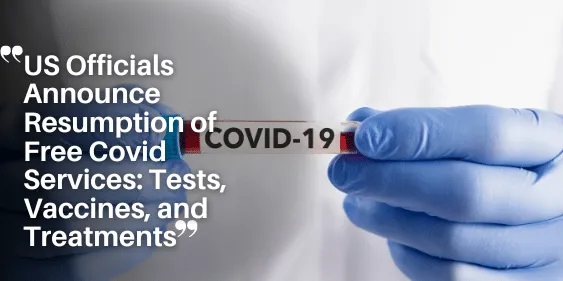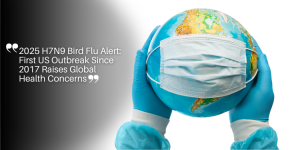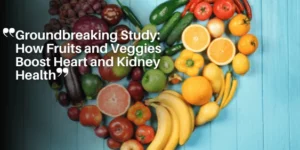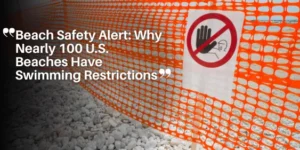US Officials Announce Resumption of Free Covid Services: Tests, Vaccines, and Treatments

US officials have announced the return of free Covid-19 testing, vaccination, and treatment programs just in time for the fall and winter respiratory virus season.
This strategic move aims to help the country better manage the expected rise in respiratory illnesses such as Covid-19, flu, and respiratory syncytial virus (RSV) during the colder months.
The focus is on using available tools like vaccines, testing, and treatment to ensure public health safety.
According to Dr. Mandy Cohen, the director of the US Centers for Disease Control and Prevention (CDC), the key to navigating the upcoming seasons successfully is vigilance.
“The best plan going into this winter is for everyone to remain vigilant, to use the tools we have: vaccines, testing, treatment against the illnesses responsible for the majority of fall and winter deaths and hospitalizations,” she emphasized.
Free Covid tests will soon be available again for households to order in preparation for fall and winter gatherings.
Additionally, government-purchased supplies of the antiviral drug Paxlovid will be accessible at no charge to uninsured individuals or those on Medicare or Medicaid.
This measure ensures that critical treatments remain reachable for vulnerable populations.
Furthermore, the CDC will allocate $62 million to state and local health departments to provide free Covid vaccines to adults who would not be able to afford them otherwise.
This funding will help cover uninsured and underinsured adults, ensuring broader immunization coverage.
Updated Covid-19 and flu vaccines are expected to hit pharmacies soon, further reinforcing the nation’s defenses against respiratory viruses.
Overall, the reinstated programs are designed to facilitate widespread access to essential services, encouraging people to make use of them as the fall and winter seasons approach.
Next, the discussion will delve into the specific details of the Free Covid-19 Testing Program.
Free Covid-19 Testing Program
As we approach the fall and winter seasons, the US government is reintroducing the Free Covid-19 Testing Program to ensure every household has access to essential testing kits.
Starting in late September, Americans will once again be able to order free at-home Covid-19 tests through a government website.
Each household can order up to four free tests, which will be mailed directly to their homes.
Accessing Free Tests
To make testing easily accessible, the government will reopen its website for ordering at-home test kits.
This initiative is particularly valuable given the importance of testing before family gatherings and holiday events.
As Dawn O’Connell, assistant secretary for planning and response at the US Department of Health and Human Services, mentioned, “Taking a quick test is a great way for all of us to keep our friends, family, and loved ones protected as we gather to celebrate the holidays.”
Community-Based Distribution
Besides home delivery, additional free Covid-19 tests will be available at various community sites.
These include libraries, food banks, and long-term care facilities, helping to reach those who may not have easy access to the online ordering system.
This multi-faceted distribution aims to ensure equitable access across different communities.
Resuming the Free Covid-19 Testing Program plays a crucial role in monitoring and controlling virus spread during the colder months.
By facilitating easy access to testing, the government is actively helping the nation manage the anticipated rise in respiratory illnesses.
Vaccination Initiatives
The US government is ramping up its vaccination initiatives by allocating $62 million to state and local health departments.
This funding aims to make Covid-19 vaccines accessible to adults who are uninsured or underinsured.
According to Dr. Mandy Cohen, CDC director, reaching out to local public health departments, state health departments, and federally qualified health centers is encouraged to get these vaccines.
Moreover, updated Covid-19 and flu vaccines are anticipated to hit pharmacies soon, adding another layer of defense against respiratory illnesses this season.
Dr. Peter Marks from the FDA emphasized the importance of getting these vaccines for preventing severe outcomes and long Covid.
Vaccination for those with private and public insurance, like Medicare and Medicaid, will continue with no co-pay.
This holistic approach ensures that financial barriers do not prevent any American from receiving their vaccinations.
The reintroduction of these programs underscores the importance of remaining vigilant and utilizing all available tools, including vaccines, to protect against the rising threat of respiratory illnesses this fall and winter.
Free Covid-19 Treatment Access
The US government’s Test-to-Treat program remains a significant initiative in the fight against Covid-19.
This program will continue to offer free Paxlovid, an antiviral medication, to those who test positive for Covid-19 and are uninsured, or who are covered by Medicare or Medicaid.
This ensures that financial barriers do not prevent access to essential treatments during the respiratory virus season.
Accessibility and Continuation
Paxlovid distribution will be handled by the federal government until the end of the year.
After that, drugmaker Pfizer is set to take over the distribution of government-purchased Paxlovid starting in 2025.
This transition is being planned to ensure a seamless continuation of treatment access for those most in need.
Importance for Uninsured and Underinsured
The continuation of this program underscores a commitment to equitable healthcare access.
The provision of free Paxlovid through the Test-to-Treat initiative means that even the uninsured and underinsured will have access to life-saving medication without the worry of cost.
This is crucial for managing and mitigating the impacts of Covid-19 among vulnerable populations.
Collaboration and Future Planning
As part of the broader public health strategy, the responsibility of distributing Paxlovid will eventually fall to Pfizer.
This handover aims to maintain consistency in the availability of the medication, ensuring that uninsured and underinsured individuals will still have access to this critical treatment beyond 2024.
Moving forward, planning and preparedness are essential to managing the impacts of respiratory illnesses.
RSV Vaccination
RSV (Respiratory Syncytial Virus) is particularly dangerous for some vulnerable groups, such as babies and seniors.
As part of the reinstated preventive health services, RSV vaccines are now available for these populations.
Target Groups for RSV Vaccination
The CDC recommends RSV immunizations primarily for:
- Babies entering their first RSV season
- Seniors aged 75 or older
- Those aged 60 or older with underlying health conditions or residing in nursing homes
- Children younger than 20 months who are at increased risk for severe disease
By focusing on these high-risk groups, the objective is to mitigate hospitalizations and severe complications caused by RSV.
Longevity of RSV Vaccine Protection
Unlike seasonal flu and Covid-19 vaccines, RSV vaccines don’t require annual updates.
The protection from an RSV shot is expected to last through more than one season.
This means if you received the new RSV vaccine last year, you won’t need another dose this fall, according to the CDC.
Efforts like these emphasize the importance of vaccinations in maintaining public health, particularly when approaching peak seasons for respiratory illnesses.
With these strategies in place, the healthcare system aims to reduce the burden on hospitals and save lives through proactive prevention and treatment measures.
Forecasts and Preparedness
Prediction for Respiratory Disease Hospitalizations
As we approach the fall and winter months, the CDC’s forecast indicates the U.S.
may experience respiratory disease hospitalization rates similar to last year, or possibly fewer.
This aligns with the reinstatement of free Covid-19 testing, vaccination, and treatment programs intended to mitigate the impact of the seasonal virus surge.
Importance of Vaccination
Vaccinations are pivotal. They not only safeguard against severe outcomes but also significantly reduce the risk of long Covid.
Dr. Peter Marks from the FDA’s Center for Biologics Evaluation and Research emphasizes, “The only way you get long Covid is by having Covid, and vaccines can help prevent Covid”.
Ensuring widespread vaccination can diminish the strain on healthcare systems and protect vulnerable populations.
Variables Impacting Forecasts
It’s crucial to note that these forecasts could change.
Should vaccination rates fall below expectations, or should a more virulent strain of Covid-19 or flu emerge, the impacts could be more severe than predicted.
Continuous vigilance and high vaccination uptake are key to maintaining these favorable projections.
Vaccination, testing, and treatment form a triad of defense as the country navigates the colder months.







